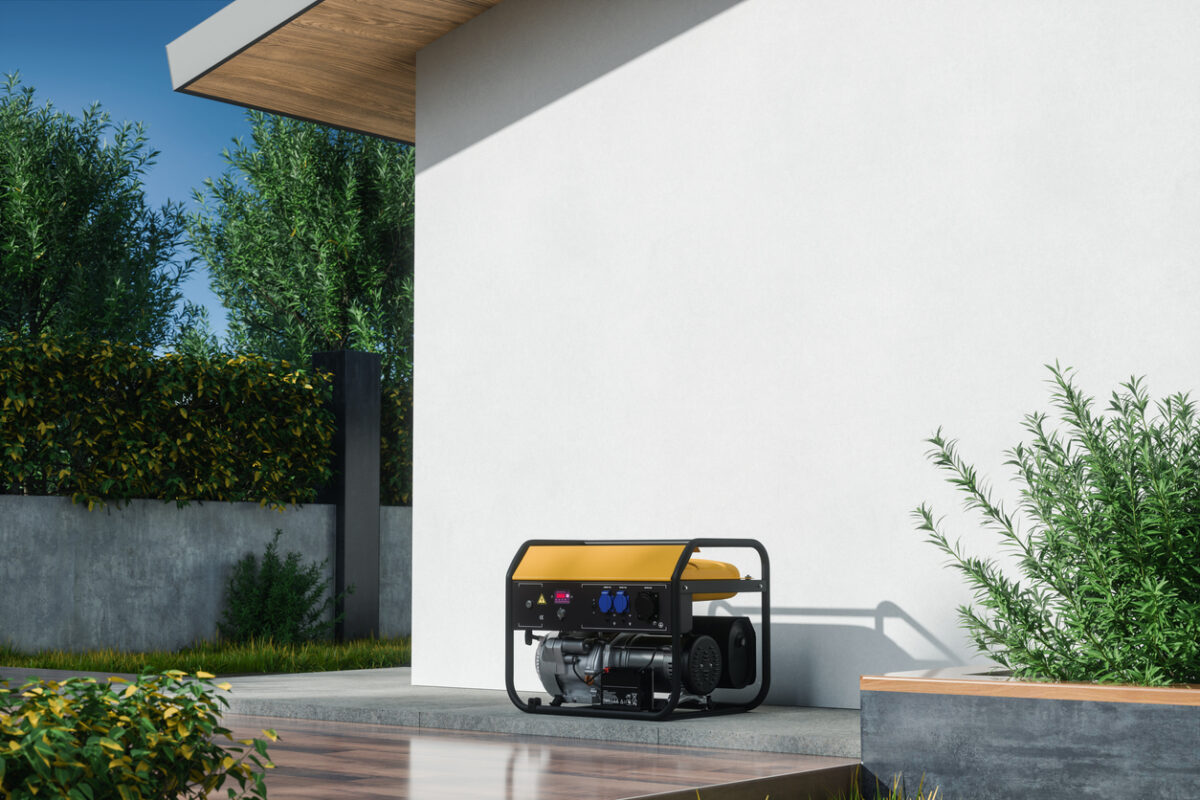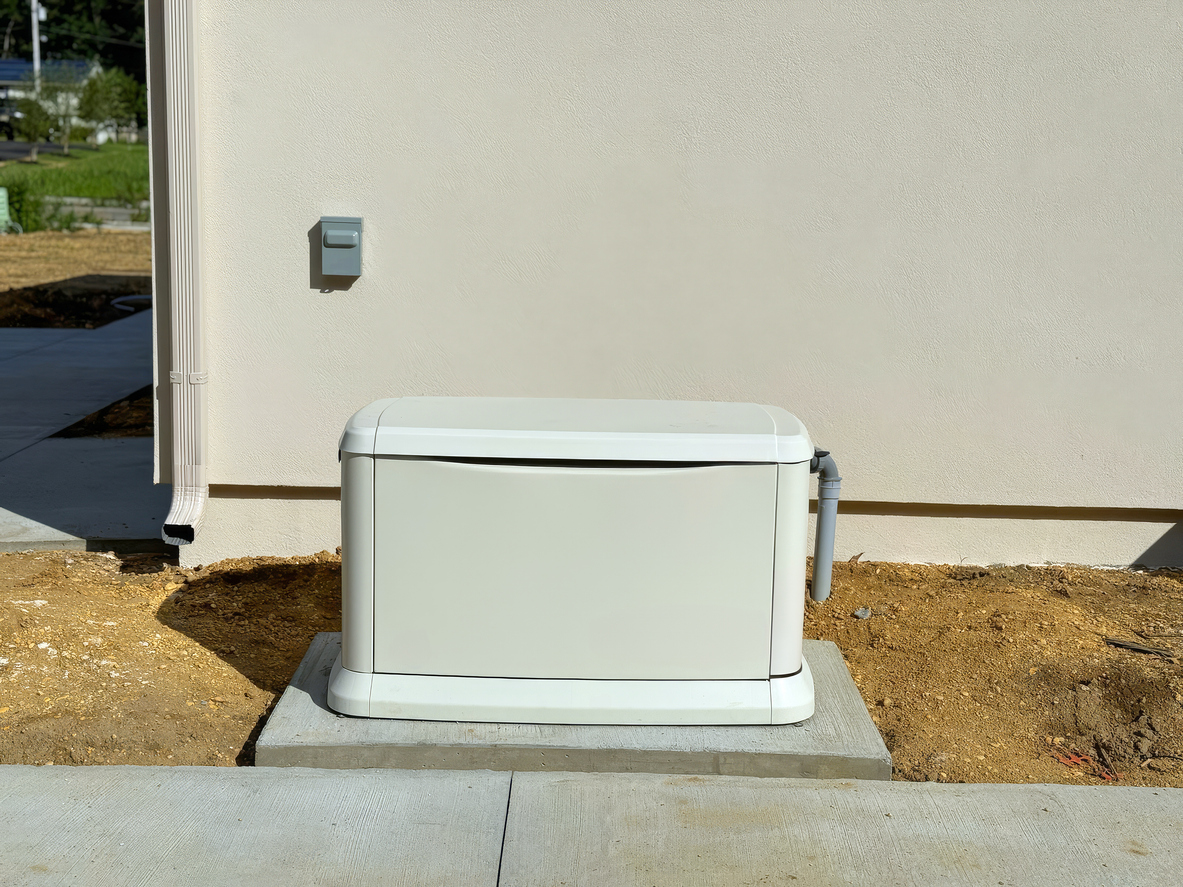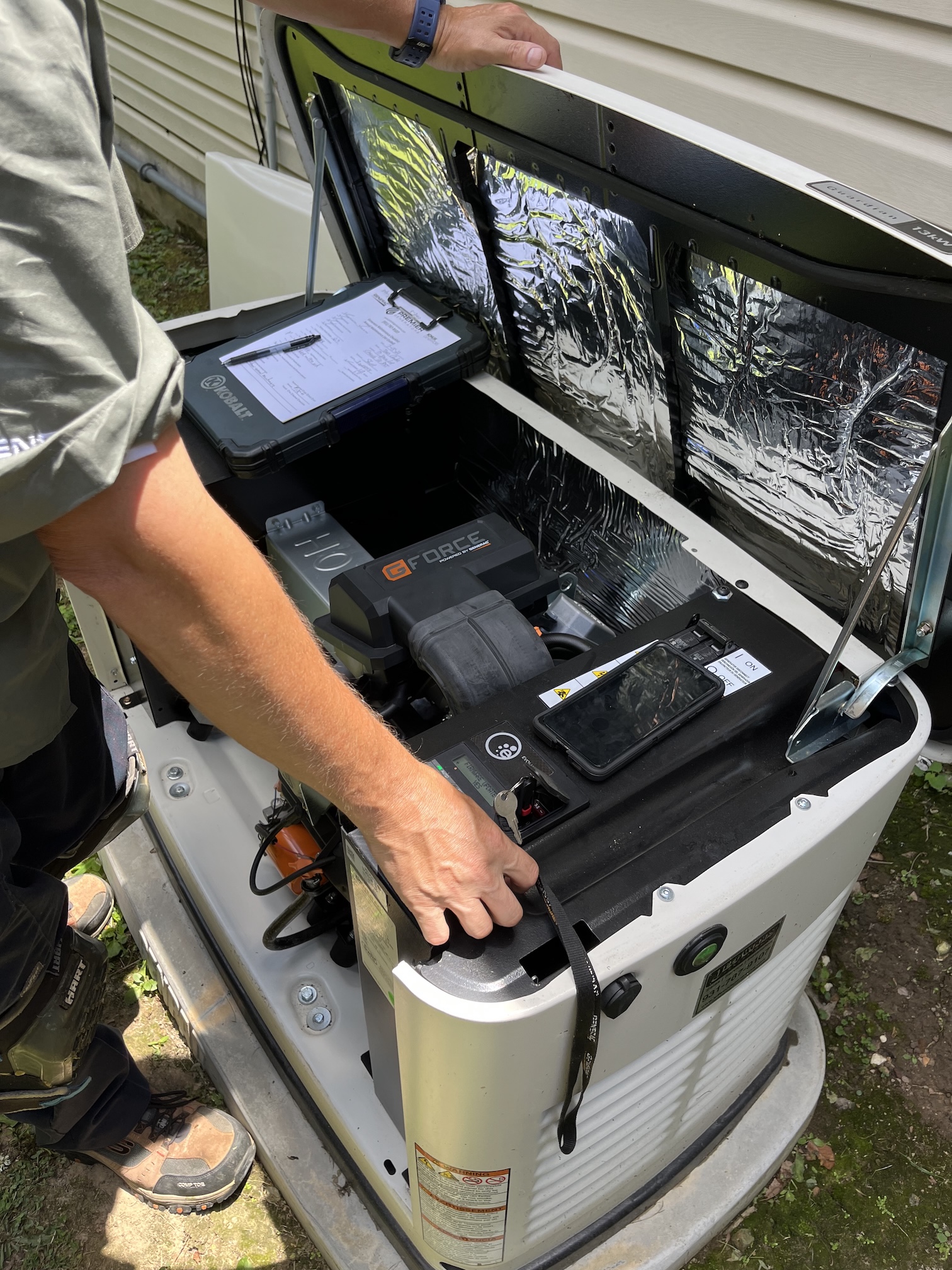How Long Can a Portable Generator Run Continuously

Portable generators can keep you going during an outage, but they’ve got their limits. How long they can run depends on the fuel tank size, how much power you’re pulling, and the specific model. Most can only run for a handful of hours before they need refueling or a break. If you’re relying on one for backup power, it’s important to know what to expect so you don’t get caught off guard.
Now, if you’re tired of dealing with refueling and constant monitoring, a whole home generator might be the better choice. These systems kick on automatically and can handle extended outages without the hassle. Contact Us to learn how a whole home generator can make power outages a worry of the past.
Factors That Affect Runtime
How long a portable generator can run continuously depends on a few key factors. Knowing these can help you plan better and avoid running into problems during an outage.
1. Fuel Capacity
The size of the fuel tank is one of the biggest factors. A small generator with a 1-2 gallon tank might run 5-8 hours on a full tank, while larger models with 5+ gallon tanks can go 10-15 hours. But once the fuel runs out, you’ll have to refill it to keep things running.
2. Load Demand
The more power you’re using, the faster the fuel burns. Running just a few essentials, like lights and a fridge, will stretch the runtime. If you’re powering larger appliances or multiple devices, expect the runtime to drop.
3. Generator Size and Efficiency
Bigger generators generally have more runtime, but efficiency matters too. High-quality models with efficient engines will burn fuel slower than cheap, low-end options.
Portable generators are useful for short-term power needs, but they’re not built for continuous use over long periods. If you’re looking for something reliable that doesn’t need constant refueling, a whole home generator might be the better option. Contact Us to learn how these systems provide long-term, hassle-free backup power.
4. Fuel Type
Generators running on gasoline or propane usually need refueling after several hours. Diesel generators can sometimes run longer, but they’re less common for home use.
5. Environmental Conditions
Hot weather can strain the engine, and altitude can reduce performance. Both can shorten runtime, especially for smaller units.
Average Continuous Runtime for Portable Generators
Portable generators come in different sizes and fuel types, so their runtime varies. Here’s a breakdown of what you can typically expect:
1. Small Portable Generators (1,000-3,000 watts)
These are compact units designed for running a few essentials. They usually have small fuel tanks and can run for about 5-8 hours on a full tank of gasoline, depending on the load.
2. Mid-Size Portable Generators (4,000-7,000 watts)
Mid-size models can handle larger appliances or multiple devices at once. On a full tank, these generators often run for 8-12 hours under moderate load conditions.
3. Large Portable Generators (8,000 watts and up)
These generators are built for heavier loads, like running multiple appliances or small HVAC systems. With a larger fuel tank, they can typically run for 10-15 hours before refueling is needed.
Risks of Extended Operation
Running a portable generator continuously for too long can lead to problems that aren’t always obvious upfront. Here are the key risks to be aware of:
1. Overheating
Most portable generators aren’t designed for non-stop use. Running them for too long can overheat the engine, which can cause damage or even a complete breakdown. Taking breaks allows the generator to cool down and reduces wear.
2. Wear and Tear
The longer the engine runs, the faster components like the spark plug, air filter, and oil break down. This increases the risk of mechanical failure and can shorten the generator’s lifespan.
3. Fuel Depletion
Portable generators require constant refueling. Running out of fuel mid-operation can cause the generator to shut down abruptly, which might damage the system or connected appliances.
4. Carbon Monoxide Risk
Generators produce carbon monoxide (CO) while running. Prolonged use in enclosed or poorly ventilated areas can increase the risk of CO poisoning. Always operate generators in open spaces, far from windows and doors.
5. Maintenance Delays
Skipping maintenance during extended use—like checking oil levels—can lead to engine damage. Regular maintenance during outages is critical for safe operation.
Portable generators are great for short-term use, but they aren’t built for extended operation. If you need something that can handle long outages without constant refueling or risks, a whole home generator is the way to go. Contact Us to learn more about reliable, long-term power solutions.
Tips for Maximizing Runtime
If you’re relying on a portable generator, you’ll want to get the most runtime out of it without pushing it too hard. Here are a few tips to keep things running smoothly:
1. Manage Your Load
Don’t overload the generator with unnecessary appliances. Stick to the essentials like the fridge, a few lights, and critical devices. A lighter load reduces fuel consumption and extends runtime.
2. Refuel Smartly
Never refuel while the generator is running or still hot—it’s a major fire hazard. Plan ahead and refuel during breaks to keep downtime minimal and safe.
3. Use Quality Fuel
Use clean, high-quality fuel to keep the engine running efficiently. Stale or contaminated fuel can cause clogs and reduce runtime. Add a fuel stabilizer if you’re storing fuel for a while.
4. Perform Regular Maintenance
Check the oil and air filter regularly, especially during extended use. Dirty oil or a clogged filter makes the engine work harder and reduces efficiency.
5. Give the Generator Breaks
Even the best portable generators need a rest. Schedule breaks every 8-12 hours to prevent overheating and extend the lifespan of the unit.
Portable generators are handy for short-term power needs, but they have their limits. Factors like fuel capacity, load, and maintenance affect how long they can run, and pushing them too hard can cause problems. While they’re great for quick fixes, they’re not built for long-term outages or powering an entire home.If you’re looking for a reliable, hassle-free solution, a whole home generator is a better choice. It kicks on automatically, handles heavy loads, and runs for extended periods without constant refueling. To learn more about installing a whole home generator, Contact Us and we’ll help you find the right fit for your home.




